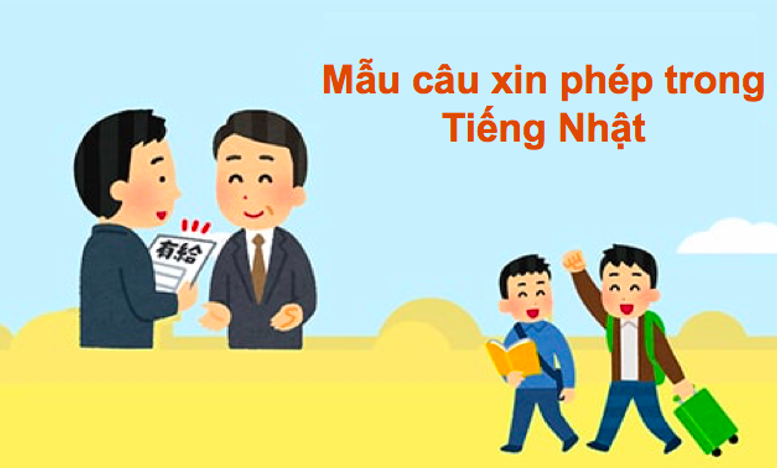1. English and university degrees are a plus when applying for a job. But in order to integrate into a new working environment and communicate well in workplace, workers might need to equip themselves with a certain level of Japanese suitable for the job.
|
Trung tâm giao lưu văn hoá và Nhật ngữ Amy chuyên đào tạo ngôn ngữ dành cho các đối tượng sinh viên, kỹ sư, và những người chuẩn bị làm việc hay học tập tại Nhật. >> Các khoá mới khai giảng thường xuyên các tối 2-4-6, 3-5-7 >> Có khoá cấp tốc 5 buổi/ tuần. 3 tiếng/buổi. Dành cho các bạn muốn nhanh chóng đạt trình độ tiếng Nhật để du học hoặc đi làm. Đạt điểm số như ý trong các kỳ thu JLPT. Nâng cao phản xạ giao tiếp. >> Tham vấn về cơ hội học và làm việc tại Nhật Hãy liên hệ trực tiếp với Trung tâm Amy tại địa chỉ 59 Lê Thành Phương, phường Phương Sài, Nha Trang. Email amyhubvietnam@gmail.com hoặc gọi số 02587308880 để biết thêm về lịch học, phương pháp giảng dạy, học phí và các cơ hội khác nhé! |
2. Renting a house in Japan:
The lease in Japan is usually for 2 years and is renewed every 2 years. Trainees can completely stop renting before the contract expires but need to give 1 month notice to the landlord (through the real estate company).
However, there are some special cases like instead of making an initial deposit and without a guarantor, the contract requires a certain amount of money if you cancel the lease ahead of time. You need to review the contract carefully before you sign it.
Within 1 year after moving house, the post office can send the parcel to the old address and send it to the new one for free. If after 1 year you still wish to move to a new address, you can still notify the post office.
For employees of the company form "official employees" (正 社員, seishain, ie recruitment indefinitely), if you want to quit the job, you need to resign, only need to give notice 1 month in advance. These will be clearly stated in the employment contract when signing a contract or company rules. Some companies even need 2 weeks before leaving your job
1. Types of employees in Japan include
2. Official staff (正 社員: seishain)
3. Contract worker (契約 社員: keiyaku-shain)
4. Hakken employees (派遣 社員: Haken-shain. Translated literally means temporary staff)
5. Trainee
6. Arubaito
4. You can apply for advice on your status of residence, visa with the Immigration Department without fear of being affected by your visa status (unless you are a criminal), and for free.
7. Students (except Japanese language schools) may be exempt from paying 年金 (nenkin, pension insurance) during their study period.
8. Students (except some Japanese language schools) can buy cheap train / bus tickets for their students. Each month can save from several thousand to several thousand yen. If you are looking for a Japanese language school, you should ask if the school is eligible for a reduction.
9. If you buy a monthly train / bus ticket, you can travel for free with unlimited number of times not only 2 stations / terminals, but also free use of all stations / stations in the middle. Therefore, if you work part time at any station / station between 2 stations / stations is considered free travel.
10. Buying things at supermarkets in the evening is often quite a discount, can save monthly meals to half.
11. If you make a membership card (free of charge) at major electronics stores, you can earn a lot of points (points), about 10% or more. Not everything bought at Amazon is cheap.
12. If you register to make an electronic card (free, or a few hundred yen / year), you buy goods in combini, vending machines ... with a volume point of 1%. Not only has to use cash, limit spending small change, just benefit a little bit.
13. Watching movies at the cinema is quite expensive, but if you are a student, you will receive a discount. Each theater will offer a discount: day 1 per month (most theaters), 1 day per week, days for female guests per week (note, there are no days for male guests!), Weekdays, days ...
14. Travel in Japan should not be too focused on saving money on hotels by renting cheap hotels or AirBnB-style houses, but should enjoy Japanese-style hotels. Japanese-style hotels, except for city hotels, are different from hotels in other countries in that they often have hot springs (onsen 温泉) and delicious meals that outside eateries hardly serve. The hotel itself is a factor to enjoy travel, not just an overnight stay.
15. If traveling to buy a tour (package) including hotel and train tickets, it is cheaper to buy each type separately, especially tours with air tickets or Shinkansen (新 幹線).
16. Traveling by rail (including high-speed train Shinkansen) is less cost effective. However, if traveling more than 100km away, the student will receive a 20% discount. If the train is usually cheap but time consuming. You can use the medium as a bus: faster than regular trains and cheaper than fast trains. If you take the night bus, you can both save travel time and save money on hotels overnight. There are night buses that can comfortably sleep in a bed.
17. There are many low-cost carriers (LCCs) traveling all over Japan. If you buy tickets 2 weeks or more in advance, you can even buy JAL or ANA tickets at the same price.
18. If you receive a bicycle from another person without asking for a registration number (防 犯 登録), or voluntarily picking up a bicycle to leave the road, there will be a day when the police touch the neck very annoying.
19. Foreigners are free to buy houses in Japan, as long as they have money. You can borrow a low-interest house from a Japanese bank, about 1-2% per year, but you need to have enough credit with a Japanese bank, such as a permanent resident visa, earning an income of 4-500,000 yen a year. upward, working in a reliable company, having worked stably for several years ...
20. As a student, it is difficult to buy life insurance (not to be confused with health insurance) in Japan but it is possible to buy insurance for studying in Vietnam. This will help minimize risks.
21. If you are working, you should see our social welfare regimes yourself. Many good companies, especially large ones, offer a range of allowances, or use very preferential outside welfare services.
22. If you are working, you can apply for a reduction of income tax 所得税 Shotokuzei, and a resident tax 住民 税 Jyuminzei if adopting a parent in Vietnam as a caretaker, provided that your parents' income is below 38 ten thousand yen / year, and prove that he can transfer money to Vietnam for his parents. The amount reduced is from several tens of thousands to several thousand yen a year, depending on how much your income is taxable. How to do it: tell our room 人事 (jinji) "扶養 家族 (fuyou-kazoku) を 申請 (shinsei) し た い."
23. If completing the procedure within 2 years after returning to Vietnam, the Japanese Government will refund about 50% of the annuity fee paid under 36 months. The procedure is a bit confusing so you can ask for "nenkin services" to help, but be careful because there are many scams.
24. If you pay nenkin taxes over 36 months and over 10 years, when over 65 years old will be entitled to Japanese pensions (ie in Japan less than 10 years, pay less than 10 years, it will waste money but still have to pay because it is rules, only get a little bit back as above). However, nenkin is not only a pension but also a 6-year pension guarantee for spouse / children in case of death and serious injury.
25. If you stay in Japan for 10 years, including 5 years working, average income, full tax payment, no law violations, you will almost certainly get a immigrant visa. (permanent residence). Having a permanent visa will do all the work, not tied to work under the visa as before. However, if you violate the law, or violate visa regulations later, the immigrant visa may also be revoked or invalidated.
26. Japan is one of the world's major performing arts centers. Many exhibitions of world-class museums, many artists and artists who all listen to the name often visit Japan. So take the time to find out the information so you don't miss the opportunity.
27. There are many flights or tours from Japan to other countries with cheap prices. Should take advantage of when in Japan to travel to other countries.
28. If you have English and graduated from university or graduate school, even if you do not know Japanese, you can apply for jobs in many good foreign companies. But in the long run, you should still know Japanese for more information.
29. Japanese public health insurance is one of the best in the world, and is mandatory for every individual in Japan. In addition to insurance for yourself, you can also cover your carer in Vietnam (parents) when they come to Japan. If the treatment fee is too high, there is a regime to limit the cost ceiling, so for serious illnesses (cancer ...), this is very beneficial.
(Source: Japan.net)





